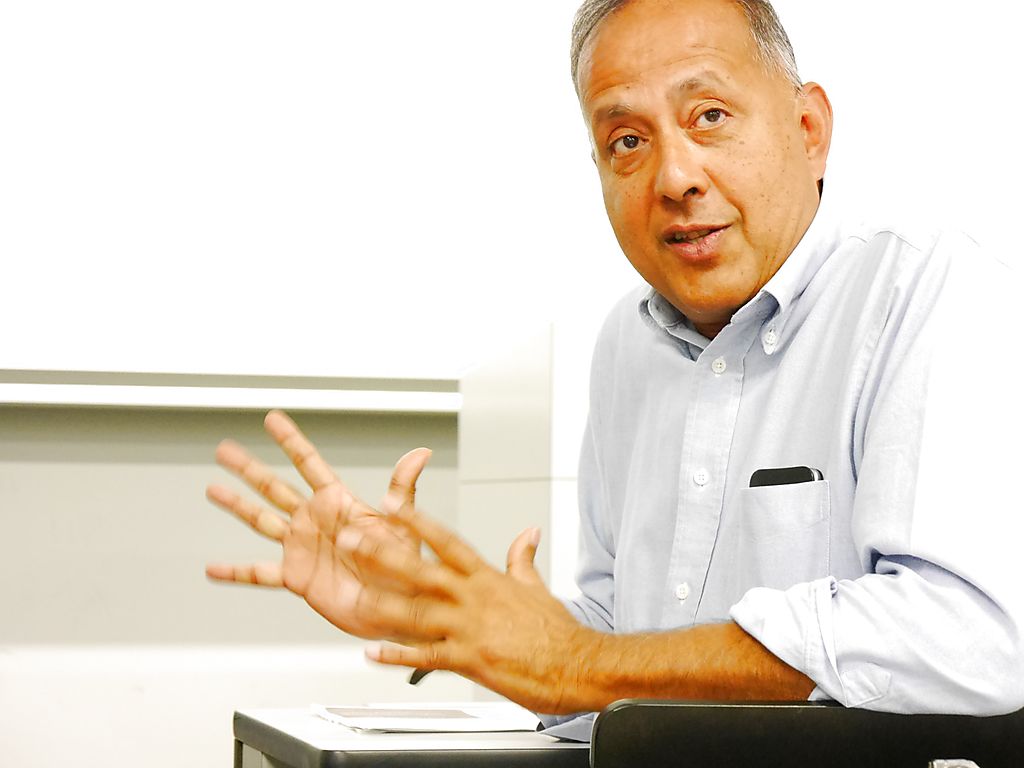International Workshop: New Developments in Political Communication Research
Mon, Jul 6, 2015-
Tags
On June 24, Waseda University’s Center for Positive Political Economy as a Top Global University Project hosted an international workshop entitled “New Developments in Political Communication Research.” The workshop was coordinated by the Waseda Institute of Political Economy and Political Economy Center for Grant-in-Aid for Scientific Research. Professor Shanto Iyengar from Stanford University, one of the world’s leading scholars of political communication, attended the workshop and presented his latest research.
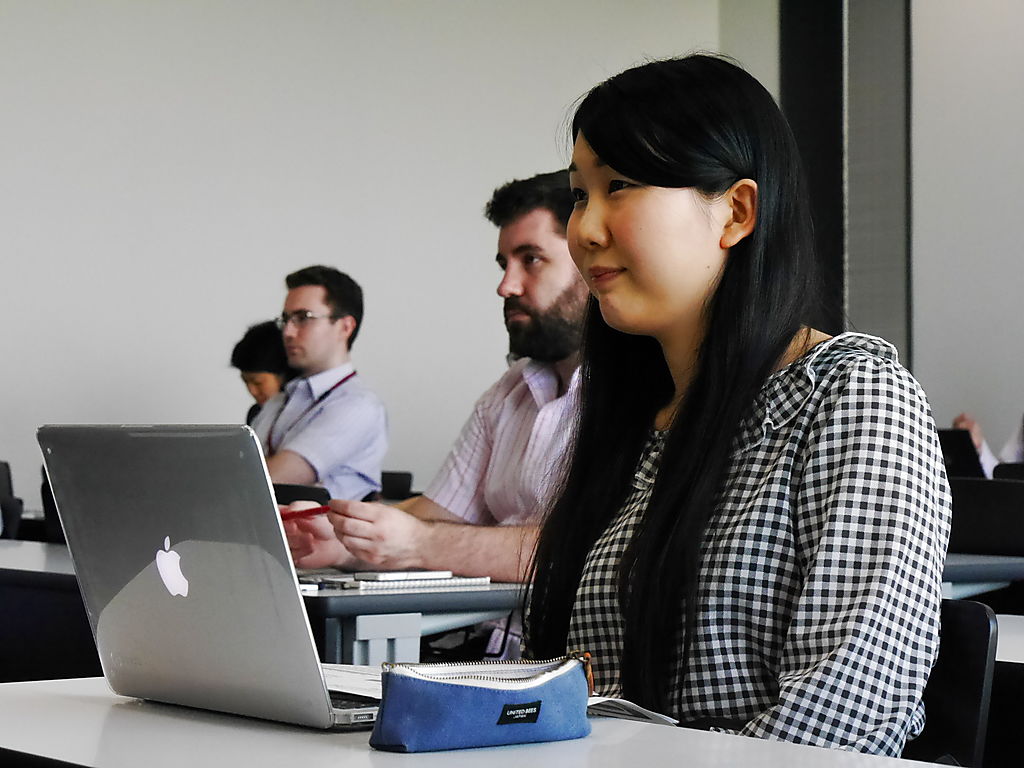
Audience members listened attentively to the presenters’ research
The workshop consisted of two sessions. Following opening remarks from Graduate School of Political Science (GSPS) professor Aiji Tanaka, three Ph.D students presented their research. The first presenter, GSPS student Gento Kato, presented his research on the influence of foreign news coverage on public perception of foreign nations. Using monthly longitudinal data of public opinion polls and newspaper coverage, he argued that effects and persistence of coverage varies from nation to nation. GSPS student Ling Liu’s presentation examined the significance of soft news and hard news in expanding public awareness. She argued that soft news has limited success in expanding public awareness. The final presenter, Hitotsubashi University student Tomoya Yokoyama, presented his research on the effects cross-cutting exposure in social environments has on political participation. Following the three student presentations, Dr. Iyengar commented on each presentation and offered advice and encouragement for further improvements in research design.
In the second session, Dr. Iyengar presented his research based on a comparative analysis of partisan polarization in the United States, United Kingdom, Belgium and Spain, entitled “The Tie That Divides: Cross-National Evidence of the Primacy of Partyism.” He began by commenting on the worsening of party relations in the United States in recent years. He pointed out that when selecting a spouse, individuals generally place most importance on political party affiliation, over physical, personality, or social attributes. He refers to this phenomenon of partisan primacy as “partyism.”
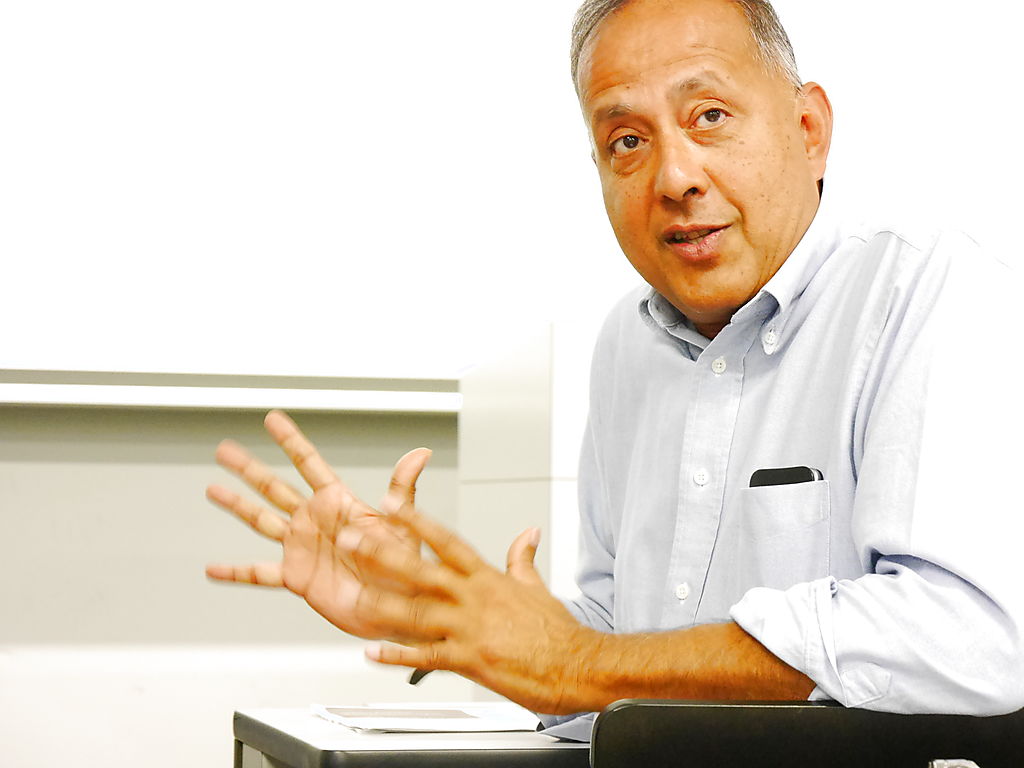
Professor Shanto Iyengar from Stanford University
To deepen understanding of “partyism,” Dr. Iyengar’s presentation compared the influence of party and social cleavages in four counties with different levels of party and social polarization: US, UK, Belgium and Basque Region of Spain. It utilized web survey “trust game” experiments based on information regarding party and social affiliation. The game measured levels of trust based on the amount of money players gave to each other, each with a randomized profile. The analysis suggested that across all four countries, party affiliation had a much larger impact on trust than social affiliation. Dr. Iyengar concluded that across several countries, distrust towards opposing political parties is greater than differences in social affiliation.
Following Dr. Iyengar’s presentation, GSPS professor Airo Hino presented on his collaborative research with Waseda researcher Ryosuke Imai and Masahisa Endo from Kochi University, entitled “The Spiral of Siren: Opinion Expression after Fukushima Nuclear Crisis.” The presentation discussed changes in public opinion towards nuclear power plants following the Fukushima nuclear crisis. After the 2011 crisis, positive opinions towards continued use of nuclear power plants in Japan decreased significantly while negative opinions drastically increased. The presentation intended to explain how a “spiral of silence,” the phenomenon where the minority is silenced by the majority, affected this trend in public opinion.
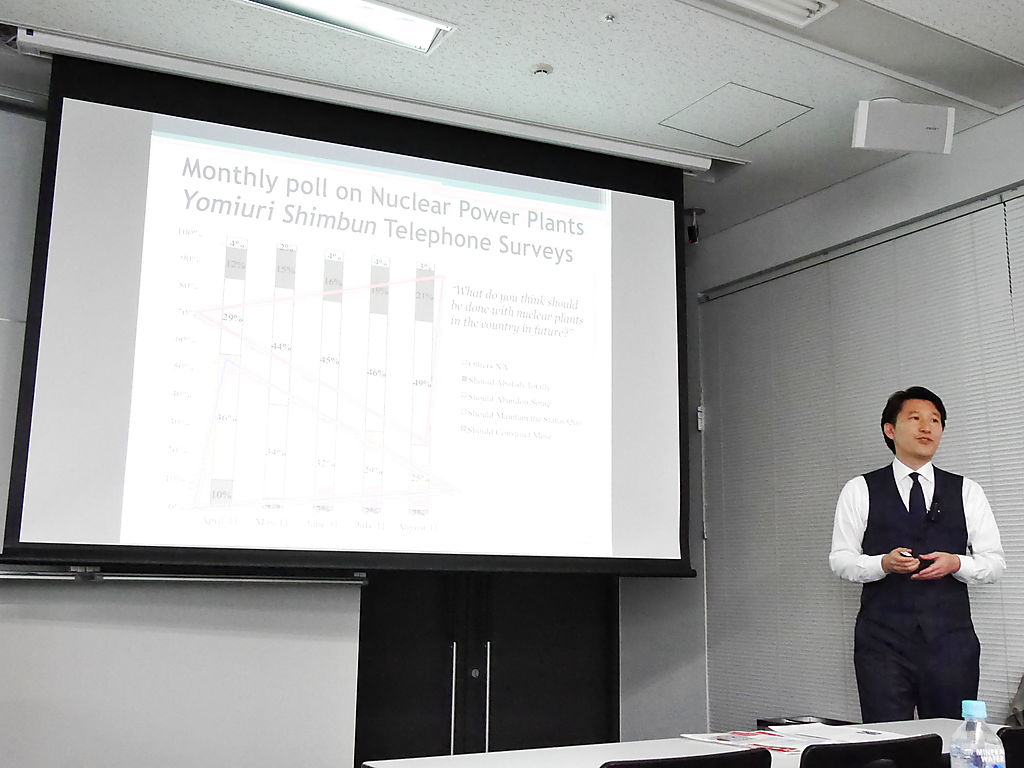
Professor Airo Hino presenting on changes in public opinion towards nuclear reactors after the Fukushima nuclear crisis
Dr. Hino utilized a survey experiment to examine the aforementioned trend, with two experimental conditions, the first being the utilization of two survey modes, Computer-Assisted Self-administered Interview (CASI) and Computer-Assisted Personal Interview (CAPI). CASI minimizes social desirability bias which consequently causes a “spiral of silence,” whereas CAPI does not. The second condition was the inclusion of “climates of opinion” which set a pro-nuclear stance as the majority in one instance and an anti-nuclear stance as the majority in another. It is expected that the “spiral of silence” will only occur under the condition of CAPI with an anti-nuclear climate. The results confirmed this expectation, but also revealed an additional effect. CAPI with anti-nuclear climate not only silenced minority pro-nuclear opinions, but also increased majority anti-nuclear opinions. Dr. Hino concluded his presentation, referring to this additional effect as the “spiral of siren.”
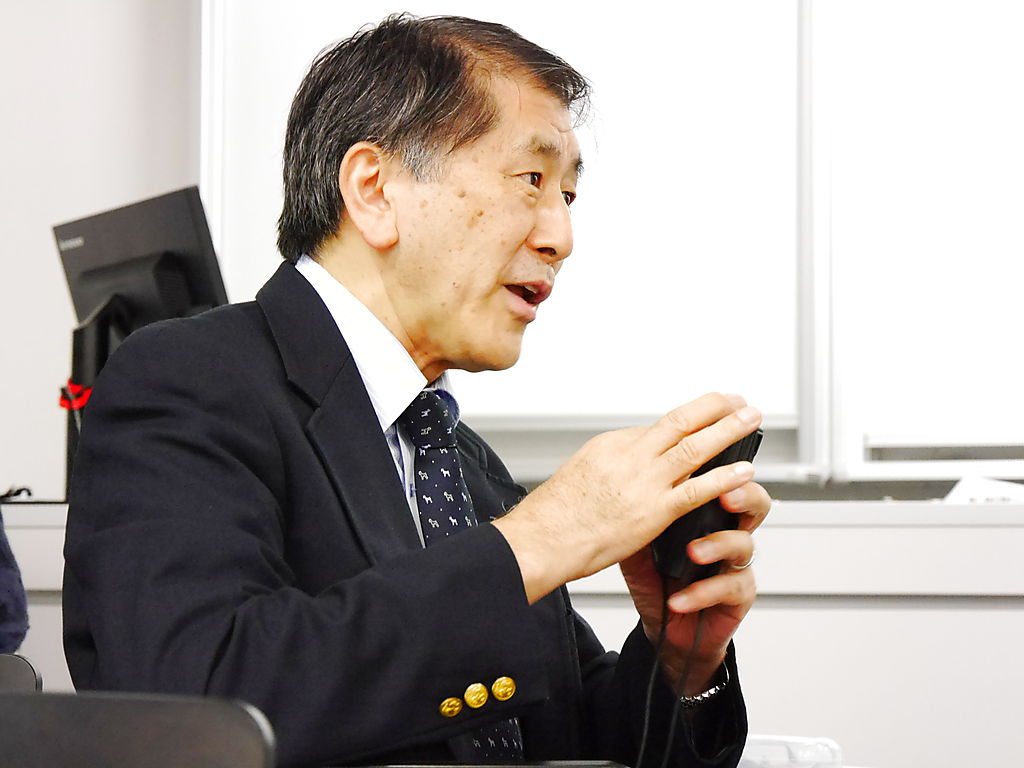
Professor Aiji Tanaka
Dr. Tetsuro Kobayashi from the National Institute of Informatics offered theoretical, methodological, and analytical comments following the two presentations. In regards to Dr. Iyengar’s presentation, he praised the application of economic game into political science studies, while indicating the inconsistency of expectations in psychological theories and trust game observations. In regards to Dr. Hino’s work, he praised the research design that manipulates survey modes with high external validity, but questioned the applicability of the “spiral of silence” theory to the research’s findings.
The workshop concluded with a Q&A session with the audience. Many questions were directed at Dr. Iyangar’s presentation and commented on the implications of his research results. Some argued that his comparative analysis can be extended to Japan as it has seemingly less party or social polarizations than any other countries in his analysis. Others questioned the difference between party and social polarization. They argued that party affiliation may be a representation of social group cleavage, and were thus indistinguishable. After active discussion, GSPS professor Masaru Kohno offered closing remarks to conclude the workshop.
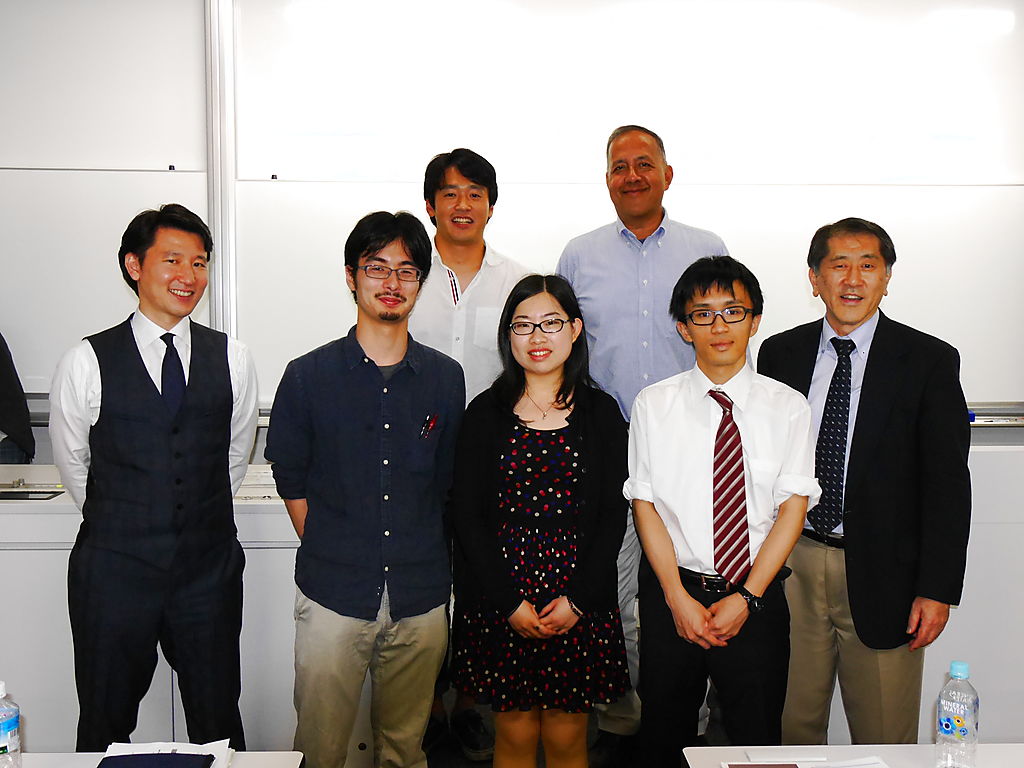
Student presenters, professors, and guest speakers
Presenters
Session I
Chair:
- Dr. Aiji Tanaka (Waseda University)
Presenters:
- Gento Kato (Waseda University)
- Ling Liu (Waseda University)
- Tomoya Yokoyama (Hitotsubashi University)
Discussant:
- Dr. Shanto Iyengar (Stanford University)
Session II
Chair:
- Dr. Masaru Kohno (Waseda University)
Presenters:
- Dr. Shanto Iyengar (Stanford University)
- Dr. Airo Hino (Waseda University)
Discussant:
- Dr. Tetsuro Kobayashi (National Institute of Informatics)


